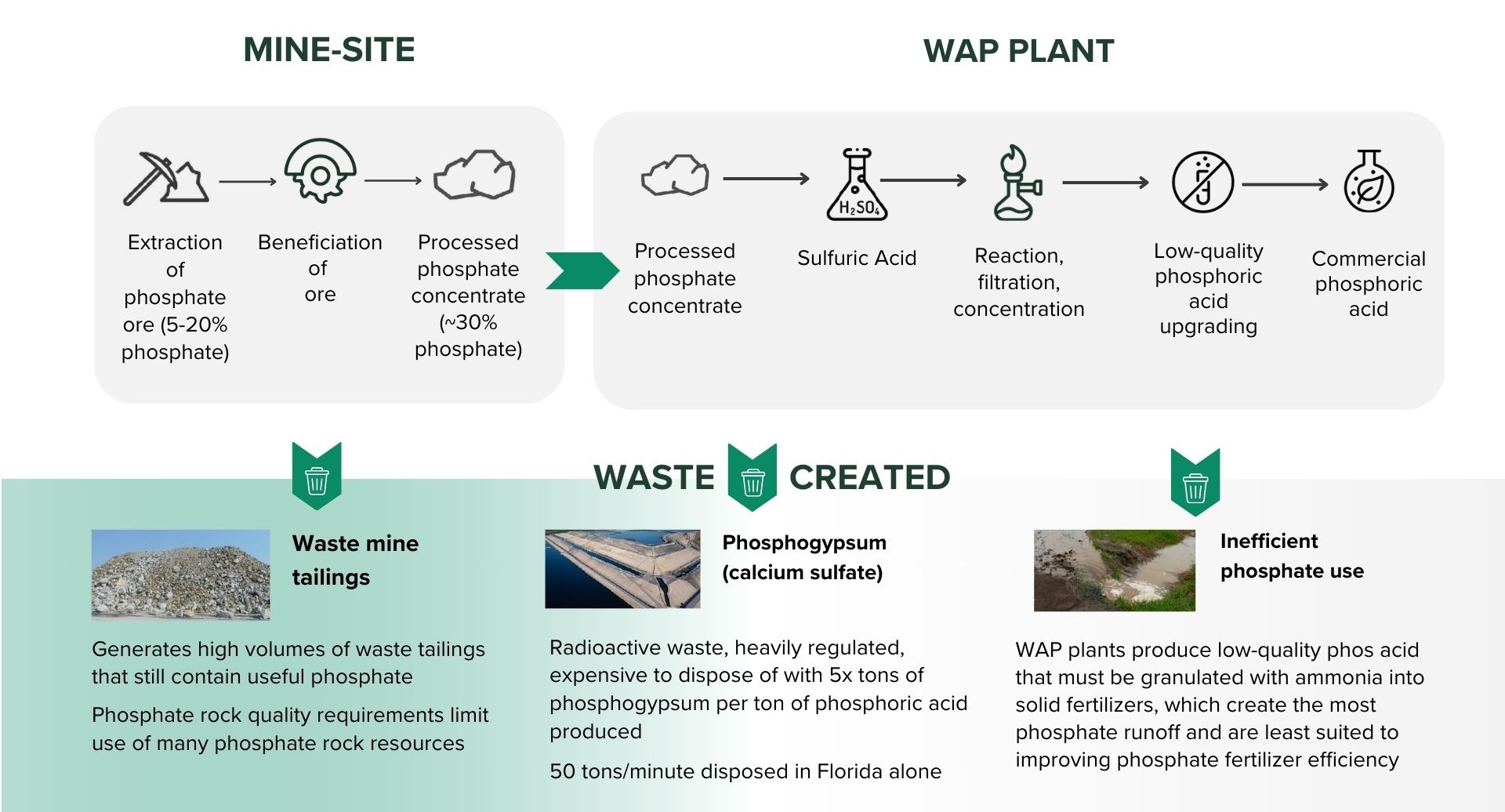
PHOSPHATE = LIFE
Life itself depends on the availability of phosphates. Phosphate fertilizers are applied by farmers to maintain crop yields and the global food supply.
There is no substitute for phosphate.
All life on Earth needs phosphate, including animals, plants, fungi, bacteria, and algae. Phosphate is needed for DNA and RNA, energy storage and transfer, cell membranes, cell signaling, skeletons, shells and many other uses.
In the global transition to clean energy, Li-ion batteries depend on high-quality phosphate products for lithium-iron phosphate (LFP) cathodes.
LFP is ~40% phosphate.
CHALLENGES WITH THE CURRENT INCUMBENT PROCESS
~95% of the world's phosphoric acid is obtained via the complex, capital-intensive, and wasteful Wet-Acid Process (WAP)
The incumbent Wet-Acid Process creates waste in the form of:
- Waste mine tailings
- Phosphogypsum waste
- Phosphate runoff
By reusing waste materials from incumbent processes, Novaphos is driving sources of value for its two low-footprint, highly-scalable processes—enabling sustainable production of high-value phosphoric acid.









